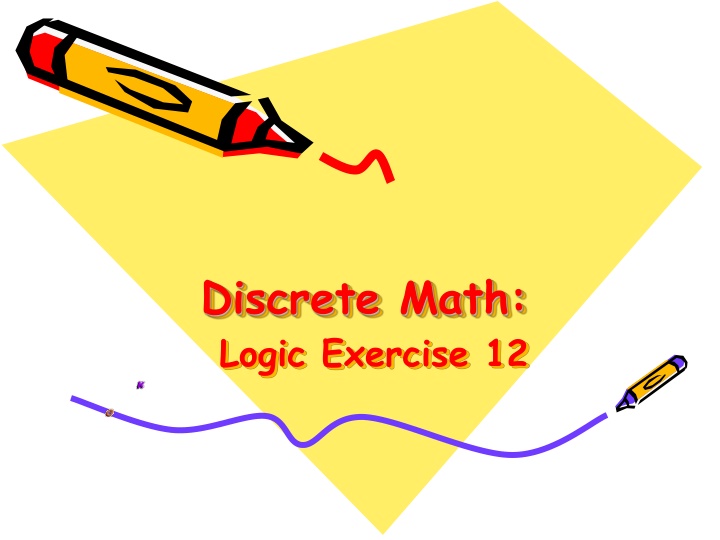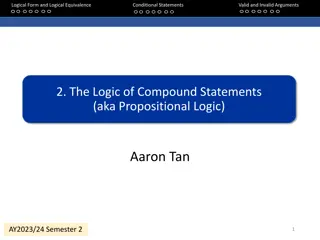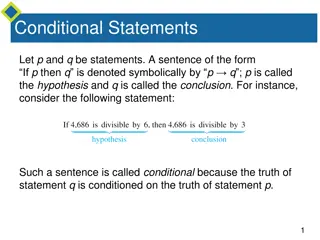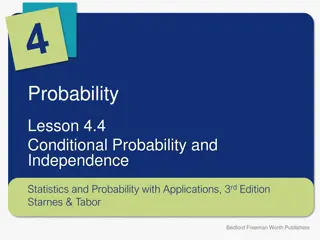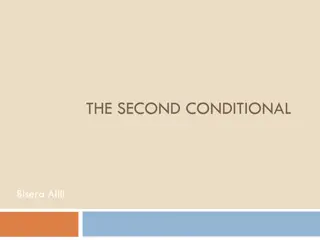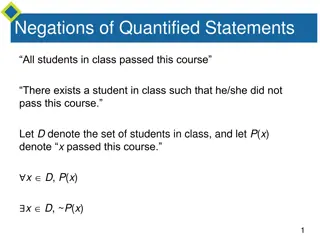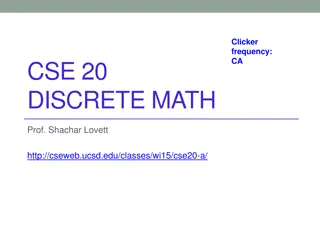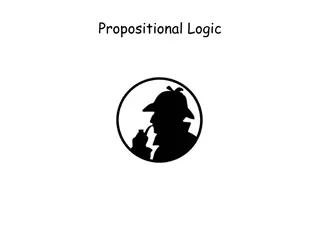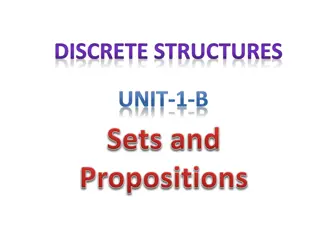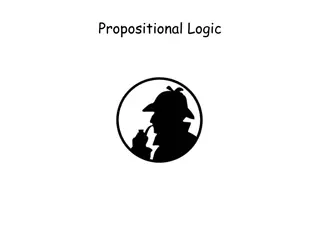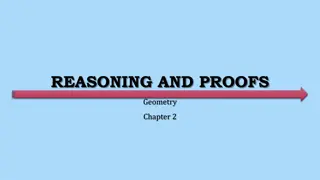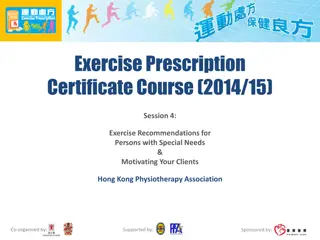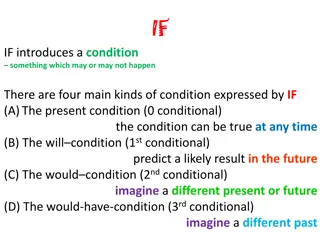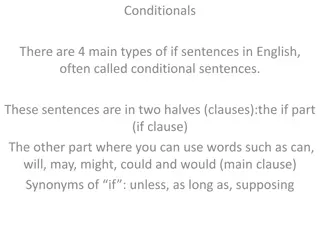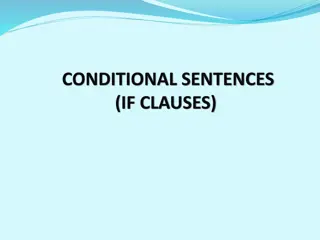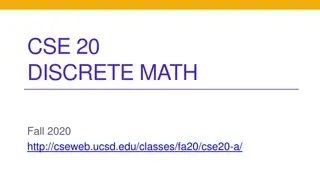Conditional Statements in Discrete Math: Logic Exercise Solutions
Practice writing conditional statements in English for various scenarios such as weather conditions, achievements, requirements, and guarantees. Understand the antecedent and consequent relationship in logic exercises. Common ways to express conditional statements explained with examples.
Download Presentation

Please find below an Image/Link to download the presentation.
The content on the website is provided AS IS for your information and personal use only. It may not be sold, licensed, or shared on other websites without obtaining consent from the author.If you encounter any issues during the download, it is possible that the publisher has removed the file from their server.
You are allowed to download the files provided on this website for personal or commercial use, subject to the condition that they are used lawfully. All files are the property of their respective owners.
The content on the website is provided AS IS for your information and personal use only. It may not be sold, licensed, or shared on other websites without obtaining consent from the author.
E N D
Presentation Transcript
Discrete Math: Logic Exercise 12
Exercise Write each of these statements in the form if p, then q in English. [Hint: Refer to the list of common ways to express conditional statements.] a) It snows whenever the wind blows from the northeast. b) The apple trees will bloom if it stays warm for a week. c) That the Pistons win the championship implies that they beat the Lakers. d) It is necessary to walk 8 miles to get to the top of Long s Peak. e) To get tenure as a professor, it is sufficient to be world-famous. f) If you drive more than 400 miles, you will need to buy gasoline. g) Your guarantee is good only if you bought your CD player less than 90 days ago. h) Jan will go swimming unless the water is too cold.
Solution a) If the wind blows from the northeast, then it snows. ["Whenever" means ''if."] b) If it stays warm for a week, then the apple trees will bloom. [Sometimes word order is flexible in English, as it is here. Other times it is not-"The man bit the dog" does not have the same meaning as "The dog bit the man."] c) If the Pistons win the championship, then they beat the Lakers. d) If you get to the top of Long's Peak, then you must have walked eight miles. [The necessary condition is the conclusion.]
Solution cont e) If you are world famous, then you will get tenure as a professor. [The sufficient condition is the antecedent.] f) If you drive more than 400 miles, then you will need to buy gasoline. [The word ''then" is sometimes omitted in English sentences, but it is still understood.] g) If your guarantee is good, then you must have bought your CD player less than 90 days ago. [Note that "only if" does not mean "if"; the clause following the "only if" is the conclusion, not the antecedent.] h) If the water is not too cold, then Jan will go swimming. [Note that "unless" really means "if not." It also can be taken to mean "or."]
References Discrete Mathematics and Its Applications, McGraw-Hill; 7th edition (June 26, 2006). Kenneth Rosen Discrete Mathematics An Open Introduction, 2nd edition. Oscar Levin A Short Course in Discrete Mathematics, 01 Dec 2004, Edward Bender & S. Gill Williamson
